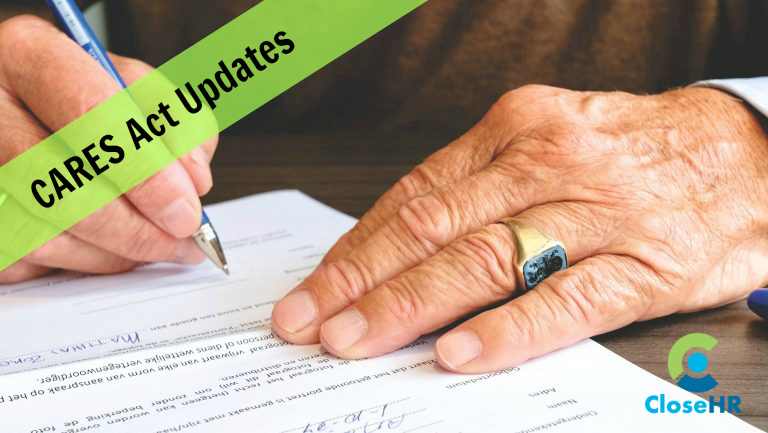
President Trump signed into law the Coronavirus Aid, Relief and Economic Security (CARES) Act on March 27, 2020. The act provides $2 trillion in assistance to businesses of all sizes, direct financial assistance to individuals, and provides aid and support to healthcare providers.
The CARES Act seeks to improve the economy with provisions that impact:
- Business loans
- Unemployment insurance
- Employer-sponsored health insurance
- Employer-provided education assistance
- Retirement savings
Below is an overview of the significant benefits for employers and employees:
Financial Assistance to Small Businesses
Approximately $349 billion will be allocated to help small businesses continue to run and keep employees employed. In the form of a loan, those eligible for a loan include:
- Small businesses and nonprofits with less than 500 employees
- Sole-proprietors, independent contractors, and self-employed individuals
- Hospitality businesses with fewer than 500 employees at each location
The program outlines in the CARES Act provides loan forgiveness equal to the amount spent on payroll (capped at $100,000 in wages), rent, mortgage, interest and utilities for eight weeks beginning on the origination date of the loan. Loan forgiveness provisions will be reduced in proportion to any reduction in employees and to a reduction in employees’ pay of greater than 25 percent.
Unemployment Insurance
Typically states administer their own unemployment insurance program, including their own eligibility and benefits. Under the CARES Act, states will have to follow the provisions provided by the act. Benefits through December 31, 2020 include:
- A temporary Pandemic Unemployment Assistance (PUA) program to provide payment to workers who would otherwise not be eligible for unemployment insurance
- This includes self-employed or independent contractors who are unable to work due to COVID-19.
- Offer recipients of unemployment insurance an additional $600 a week for up to four months.
- Funding to pay the first week of unemployment for states that choose to pay individuals as soon as they become unemployed instead of waiting one week before becoming eligible to receive benefits.
- An additional 13 weeks of unemployment benefits.
- 100 percent funding of “short-time compensation” programs when employers reduce an employee’s hours instead of laying them off completely.
- Employees with reduced hours receive a prorated unemployment benefit.
Paid Leave in Regard to the Families First Coronavirus Response
- The CARES Act provides funds to federal agencies so that they can reimburse federal contractors for paid leave that they provided to certain employees or subcontractors who were unable to work due to COVID-19, including individuals who cannot telework because their jobs cannot be performed remotely.
- Employees that are laid off after March 1, 2020 and later rehired related to related to COVID-19 are entitled to emergency family medical leave and sick leave as outlined by FFCRA.
Business Tax Credits
- In certain situations, the CARES Act provides a payroll tax credit for 50% of wages by employers to employees, up to $10,000 per employee.
- Employers are allowed to delay the payment of the Social Security tax, including half of the share owed by December 31, 2021 and the other half by December 31, 2022.
Retirement/Pension Plans
- Single-employer pension plan companies may delay the due date for any contributions that would otherwise be due in 2020 until January 1, 2021.
- The required minimum distribution rule for certain defined contribution plans and individual retirement accounts for 2020 has been waived.
- There is no withdrawal penalty for distributions of up to $100,000 from qualified retirement accounts for COVID-19 related reasons.
Direct Payments to Individuals
- The federal government will pay individuals directly $1,200 who have a gross income of less than $75,000 and $500 for each child. Married couples with a gross income less than $150,000 will receive $2,400 directly from the government.
- Individuals who earn more than the amounts listed above may receive smaller checks from the federal government.
- Individuals earning more that $99,000 and couples making more that $198,000 are not eligible for direct payments.
Stay Updated
As new and additional information related to COVID-19 becomes available please follow Close HR’s regularly updated blog “What Employers Need to Know About the Coronavirus.”
For current health information related to COVID-19, visit the following sites:
- Center for Diseases Control and Prevention
- World Health Organization
- NC Department of Health and Human Services
***
For additional updates and HR assistance with business planning and employee communications related to COVID-19, contact Close HR Connections.

 Back to Results
Back to Results